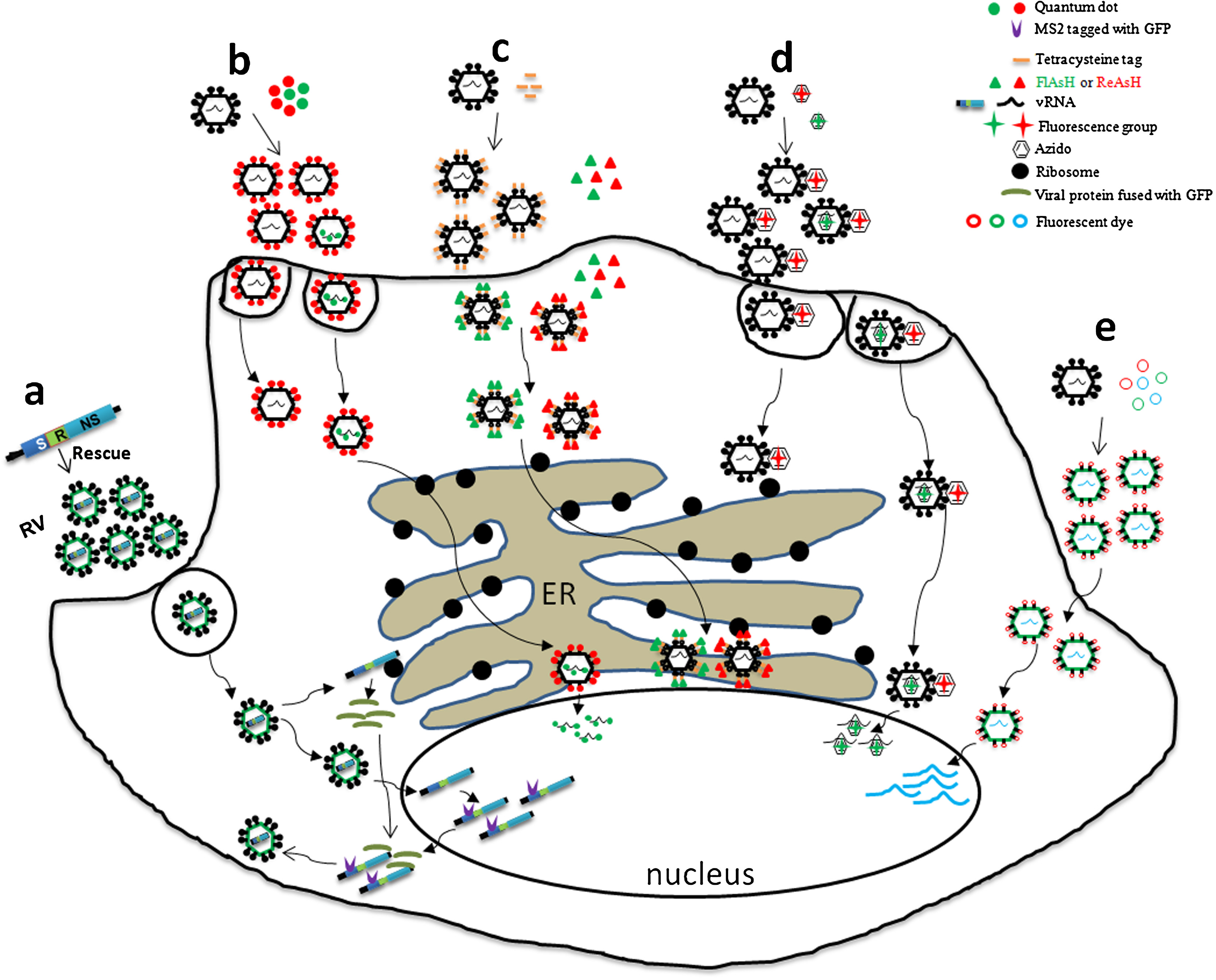Virus mediated Exosome Labeling Service
Virus mediated exosome labeling is a technical that utilizes viral vectors to introduce genes encoding fluorescent proteins or labeling molecules into exosome-producing cells, thereby enabling stable expression of marker proteins in exosomes. This method employs viral vectors such as lentiviruses or adeno-associated viruses to fuse fluorescent tags with exosomal membrane proteins, allowing for specific labeling and tracking of exosomes.
Virus mediated exosome labeling service is widely applied in exosome biology research, investigation of intercellular communication mechanisms, drug delivery pathway tracing, tumor microenvironment studies, and the development of early disease diagnostic models. Compared to traditional chemical dye-based methods, virus-mediated labeling offers higher specificity, stability, and controllability, making it particularly suitable for long-term in vivo imaging, live tracking, and in-depth studies of dynamic exosome behavior.

Liu, X H. et al. Virus Research, 2017.
Figure 1. Viral Labeling Techniques.
Services at MtoZ Biolabs
Based on advanced experimental procedures and analytical platforms, the virus mediated exosome labeling service provided by MtoZ Biolabs utilizes viral vectors to introduce fluorescent tag genes into exosome-producing cells, enabling stable labeling of exosomes. During the service, a high-efficiency viral vector construction platform and optimized cell transduction system are employed. Combined with transmission electron microscopy (TEM), nanoparticle tracking analysis (NTA), and flow cytometry (FACS), the labeled exosomes are comprehensively evaluated for particle size, morphology, labeling efficiency, and fluorescence intensity to ensure accurate and reliable data.
Service Advantages
1. Established Technical Platform
MtoZ Biolabs possesses a robust and efficient viral vector construction and packaging system, supporting the fusion expression of various fluorescent tags with membrane proteins, ensuring the specificity and expression efficiency of exosome labeling.
2. Reliable Data Quality
With advanced platforms such as transmission electron microscopy (TEM), nanoparticle tracking analysis (NTA), and flow cytometry (FACS), MtoZ Biolabs conducts comprehensive validation of labeled exosomes, providing accurate and reproducible data support.
3. Activity-Preserving Design Concept
MtoZ Biolabs carefully controls conditions during viral transduction and selection to ensure that the labeling process does not compromise the structural integrity or biological activity of exosomes.
4. One-Stop Service Support
From viral design and exosome preparation to imaging analysis, MtoZ Biolabs offers a comprehensive workflow supported by an experienced technical team, providing customized solutions tailored to diverse research needs.
Applications
1. In Vivo Homing and Distribution Studies of Exosomes
Fluorescently labeled exosomes via virus-mediated methods enable real-time imaging in small animals, allowing precise tracking of their distribution across various organs or tissues such as liver, spleen, brain, and tumors.
2. Intercellular Communication Mechanism Analysis
By co-culturing virus-labeled exosomes with recipient cells, the virus mediated exosome labeling service allows observation of uptake, intracellular trafficking, and functional changes, facilitating research on intercellular signaling and regulatory processes.
3. Drug Delivery System Evaluation
By integrating viral labeling technology, this service enables the assessment of exosomes’ targeting ability and delivery efficiency as carriers of RNA, proteins, or small-molecule drugs, providing critical data support for the development of novel nanomedicines.
4. Tumor Microenvironment and Immune Regulation Research
In tumor models, the virus mediated exosome labeling service allows tracking of exosomal activity, facilitating the evaluation of their specific roles in immune evasion, tumor metastasis, and immune cell modulation.
FAQ
Q1: Will this Labeling Method Affect the Function of Exosomes?
A1: No. Virus-mediated labeling is performed at the cellular level, avoiding direct chemical modification or interference with exosomes. This approach effectively preserves the structural integrity and biological activity of exosomes.
Q2: Can Customers Choose Specific Membrane Proteins or Fluorescent Tags?
A2: Yes. MtoZ Biolabs offers customized services and can design specific fusion protein constructs based on customer requirements to meet needs for targeted imaging or functional studies.
How to order?







